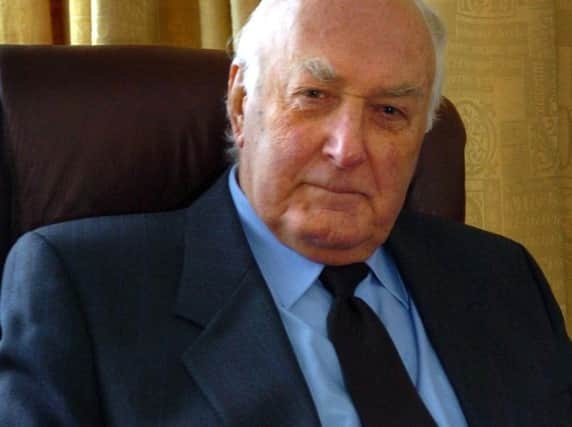Former Wigan policeman who became a top detective is mourned


Former Chief Supt Ian Hunter’s impressive casebook included investigations into the Handless Corpse slaying, the infamous Black Panther, the bizarre killing of boy soldier Alan Livesey and the brutal slaying of mum Joan Harrison.
Other news: Firefighters attacked by the public as they respond to incidents in WiganAnd he later chronicled his experiences in a book called Murder in Lancashire in which he told the story of 10 of his most intriguing cases.
Advertisement
Hide AdAdvertisement
Hide AdBorn in Aberdeenshire, Mr Hunter was described by former colleagues as “a good old fashioned copper.”
He joined Lancashire Police in 1956 as a 25-year-old and initially served in Wigan and then Huyton before a series of promotions eventually saw him rise to become head of the county’s CID.
Over the course of a 30-year police career Mr Hunter, who lived in Hoghton, helped put scores of ruthless criminals behind bars.
One of those was serial killer Donald Neilson, the infamous Black Panther, who murdered five people between 1971 and 1975 - four of them during armed raids on post offices, including one at Baxenden near Accrington.
Advertisement
Hide AdAdvertisement
Hide AdHe helped to capture double killer Neil George Adamson - known as the “Mad Dog of Pudsey” - who was holed up in Colne.
But arguably his best-known case in Lancashire was the capture and imprisonment of up to a dozen members of a worldwide drugs cartel who murdered “Mr Asia” Marty Johnstone and dumped his handless corpse in a flooded quarry near Chorley.
Joan Harrison’s murder in Preston was for years thought to be the work of the Yorkshire Ripper thanks to the “Wearside Jack” prank call. A man later confessed in his prison cell.
Mr Hunter’s funeral was held at Charnock Richard Crematorium on Thursday at 3.30pm. Donations in lieu of flowers were made to the Royal British Legion.
Advertisement
Hide AdAdvertisement
Hide AdAfter retiring from the police force Ian Hunter began researching his family history and discovered he was a descendant of the famous Hunter clan.
He became involved in events organised by the clan and eventually became its president - or Clan Officer.
Speaking in 2009, he said: “I’m very proud of my ancestry.
“The best part to me is the historical and traditional aspect of being part of a clan that has existed from the 1100s.
“Every Hunter in the world is derived from our clan.
“Three times a year we get to meet each other dressed in our tartans.”